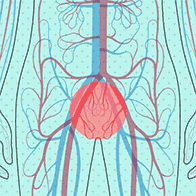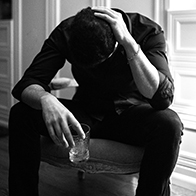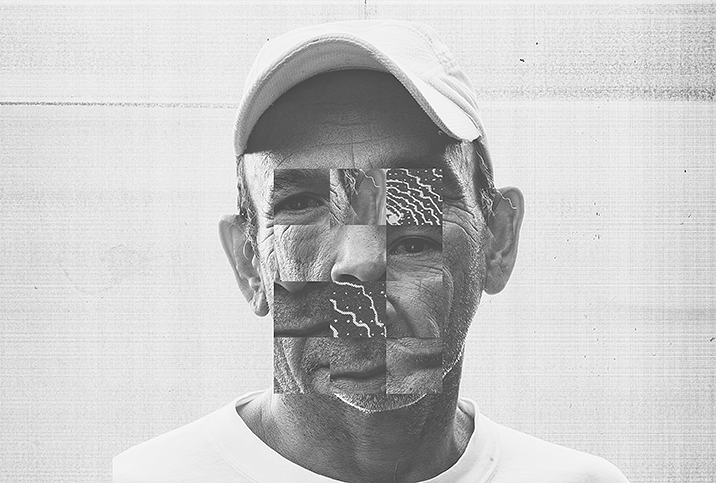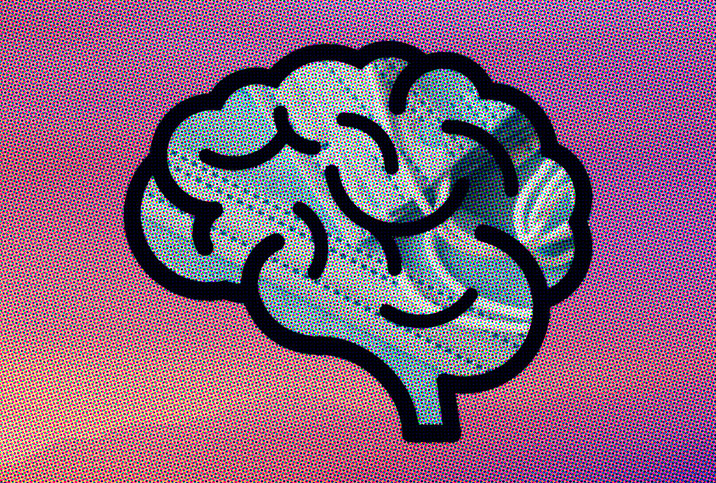Good Stress, Bad Stress and Their Effects on Sexual Function

Our modern lives present us with myriad potential stressors, some "good" and some "bad."
Family matters and finding the money to pay rent and bills may be constant concerns for you. Maybe you're overworked or underemployed. Maybe you're having trouble balancing work and school. Perhaps the protracted COVID-19 pandemic is causing you to feel chronic stress.
Conversely, you may be a guy who spends significant time under tension at the gym, "getting swole," as the saying goes, and leaves feeling exhilarated. Or you might enjoy post-run euphoria resulting from the stress associated with prolonged and intense aerobic exercise.
All of these experiences have effects, either positive or negative, on your overall health and well-being.
Stress refers to a bodily experience, while stressors constitute the events that engender this experience, according to Jennifer Litner, Ph.D., LMFT, CST, a sexologist, certified sex therapist and founder of Embrace Sexual Wellness, a clinic in Chicago.
The term "eustress" refers to the good stress you experience, whereas "distress" is associated with negative reactions to stressors, Litner said. Eustress can come in the form of a rush that alters biochemistry and motivates you or makes you feel good about something, like the excitement and nervous energy associated with getting married. Distress, usually more of a pressing concern, tends to involve a preoccupation with something in reaction to a stressor that impairs your life and health.
Stress affects sexual function
Men might reasonably wonder whether, how and to what extent the stress they experience affects their sex life.
A 2006 study found stress incrementally affects sexual function, and internal stress originating within a couple's relationship and critical life events factor into sexual dysfunction among men and women. A study published in 1993 in the Journal of Sex Research showed an association between the stress of unemployment and difficulty attaining an erection.
For men, erectile dysfunction is often "psychogenic" in nature, meaning their inability to achieve or maintain an erection is predominantly or exclusively due to psychological or interpersonal factors, many of which relate to or contribute to stress. In the same vein, new research demonstrates a link between the ongoing pandemic and erectile dysfunction (ED).
The precise mechanisms underlying the relationship between stress and erectile dysfunction remain elusive, according to the authors of a pilot comparative study that looked at stress management in relation to ED. But that does not make the stress or the associated ED any less real for men.
"We know that stress has an impact on one's sexual interest," Litner said.
'When we're doing things that are good for our bodies, our bodies generally feel better.'
The impact can be for better or worse. Stress can cause a guy's libido to spike or dip. Litner said this happens because the body reacts to stress by releasing the hormones adrenaline and cortisol. When the brain triggers the release of cortisol in response to stressors, the cortisol goes through the hypothalamic-pituitary-adrenal (HPA) axis. When stress is chronic and cortisol levels remain too high for too long, waning sexual interest is frequently the result, Litner explained.
"The arteries can narrow and restrict blood flow in response to stress, which can also lead to erectile dysfunction," she said. "We've also seen people who have had an increase in cortisol having challenges in response to sexual stimuli."
Some people seek sex more often when stressed, and some use sex as a way to relieve stress, she acknowledged. Litner said physical exercise and intimate connections associated with the release of dopamine and oxytocin can counteract the effects of cortisol.
Through such mechanisms, the stressors from a workout, for example, could very well make a man horny.
"When we're doing things that are good for our bodies, our bodies generally feel better," Litner said.
Regular exercise—good stress—can improve cardiovascular function and circulation, which tends to be conducive to greater well-being and sexual function.
Stress activates the fight-or-flight response
On the other hand, Litner said stress can distract us and affect our ability to think clearly, get aroused or remain in the moment. Anyone who has desired sex less when dealing with distress can relate.
Stressors can activate the sympathetic nervous system and initiate the body's "fight-or-flight" response, priming us for action by increasing heart rate, blood pressure and breathing rate so we can either fight what we face or flee from it.
"When that's happening, that's going to inhibit functions that aren't necessarily needed, like digestion or having an erection," Litner said. "If it's the lion that's chasing you, [then] you having an erection is really not important. [That] is kind of the way to think about it."
She noted that enduring stress and the high levels of cortisol that accompany it can raise blood sugar and blood pressure, increase anxiety and impair immunity. For some men with stress-induced health problems, ED ensues.
"Cortisol also inhibits testosterone, which is the primary sex hormone for folks with penises, and that's responsible for sexual interest," Litner added.
PTSD and sexual function
People who experience post-traumatic stress disorder (PTSD) are at greater risk for sexual dysfunction, regardless of whether their trauma was sexual in nature, said Amy Lehrner, Ph.D., a clinical community psychologist at the James J. Peters VA Medical Center in the Bronx, New York, and an assistant professor in the psychiatry department at the Icahn School of Medicine at Mount Sinai. PTSD, she noted, is a psychiatric disorder that differs from everyday stress and cannot be properly diagnosed until a month after a person has experienced something traumatic, because having symptoms in the wake of trauma is common.
"It's not a disorder unless you fail to recover from those symptoms," Lehrner clarified, adding that different dimensions of sexual function—from erotic appetite to erections to ejaculatory function to satisfaction—can be affected differently when a person has PTSD.
PTSD also co-occurs with depression, which can diminish desire, and a diminution of sexual desire is a symptom of PTSD. However, research suggests PTSD can increase a man's risk for sexual dysfunction independent of depression, Lehrner explained. Yet sexual dysfunction is not considered a symptom of PTSD, though research has shown it happens frequently in conjunction with the disorder.
"So it's something that often clinicians don't ask about, and patients and partners don't realize can be connected," she said.
Lehrner advocates for a better, broader understanding of the connection to reduce existing stigma and to facilitate dialogue on the subject between patients and healthcare providers, so people do not suffer in silence and shame.
Although treatments depend on the individual, Lehrner said the goal should be helping everyone to work toward a satisfying sex life, even if it might be different from the sex life they had before they were traumatized. This could mean prioritizing treatment for PTSD or focusing on particular problems pertaining to sexual function stemming from post-traumatic stress.
"The more you worry about your sexual functioning, there's this vicious cycle where the more you worry, the worse it gets," Lehrner said.
Stress management
Similarly, Litner suggests everyday stress surrounding ED can diminish erotic desire, contributing to a cycle of sexual dysfunction.
"Really being able to figure out how to manage stress and properly engage in a stress cycle—in ending a stress cycle—I think is important," she said.
Stress management can start with talking to your doctor and can involve psychotherapy, self-reflection and a conscious effort to make small changes to reduce distress.
"If the stress that you're experiencing is about your erectile functioning and that's the nature of the stress, then I think working with a sex therapist is a really important choice there," Litner said.
In addition, the mental health toll exacted by the pandemic has made it more difficult for some men to stay present and focused during sex.
"If they start to worry about their loved one who has COVID while they're in the middle of a sexual experience, that could take their mind away from it," Litner said, adding that mindfulness-based practices can help a person mitigate and manage stress levels exacerbated by the pandemic.
She emphasized the different care options available and noted that men do not always seek therapy as eagerly or enthusiastically as others, so recognizing that no one has to suffer alone can be critical.




















